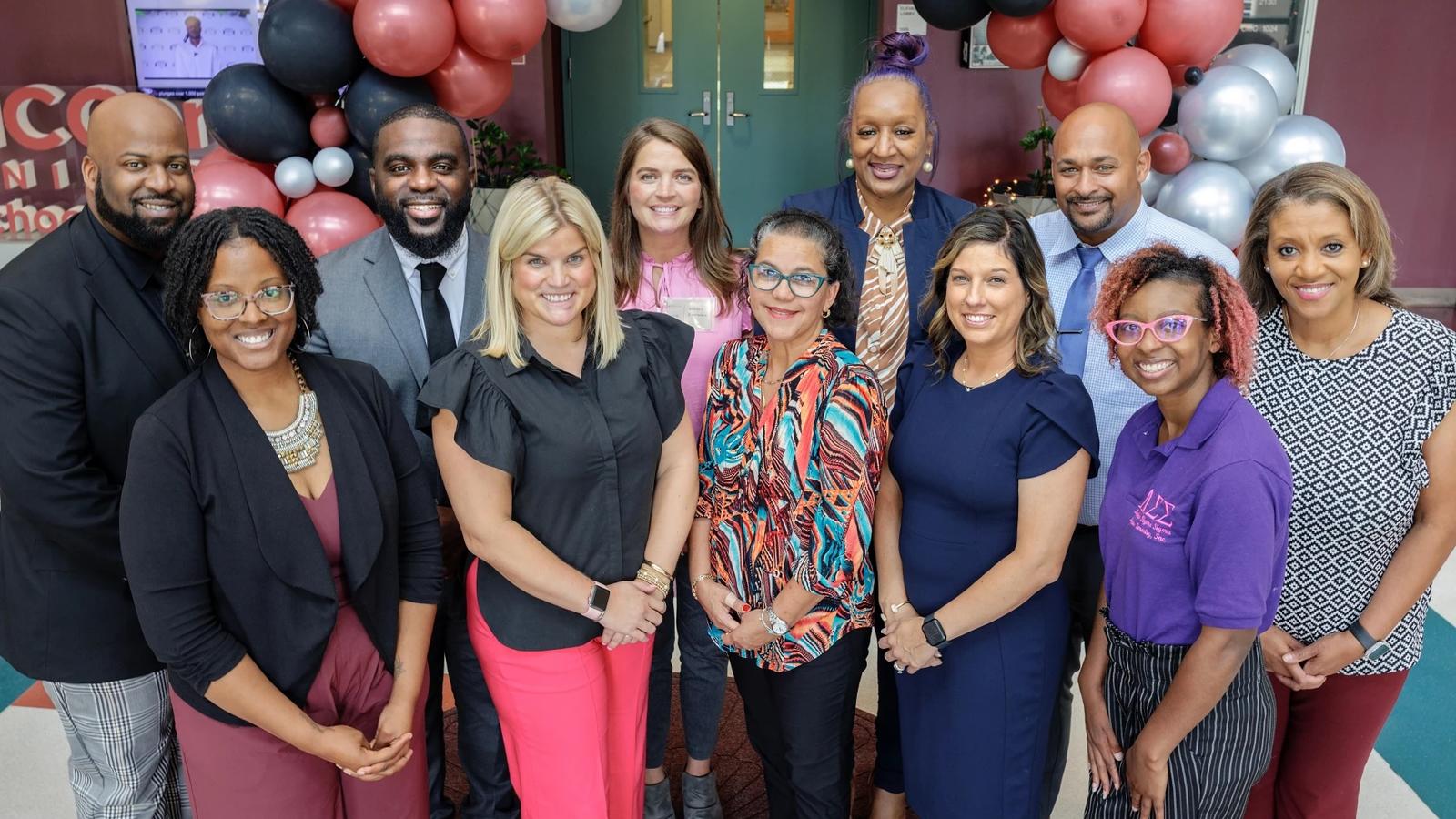North Carolina Central University (NCCU) has partnered with the Innovation Project (TIP) in launching a new scholarship program for aspiring principals in small, high-need districts across the state. TIP will provide more than $1.5 million in scholarships to prepare educators for leadership roles through the university’s online Master of School Administration (MSA) program.
This initiative, known as the Recruitment, Retention, and Promotion of Effective Educators (RRP) scholarship program, will fully cover tuition for the two-year MSA program at NCCU and provide salary support for participants during their second year as full-time principal interns. Funding comes from the U.S. Department of Education and the N.C. Department of Public Instruction.
Our collaboration with the Innovation Project is a powerful step in empowering educators to lead and transform high-need districts,” said NCCU Chancellor Karrie G. Dixon. “At NCCU, we are dedicated to preparing leaders who will not only excel in their roles but also make a lasting impact on the communities they serve."
NCCU recently hosted the orientation for the first cohort of 16 educators from eight TIP member districts. During their first year, these educators will begin their journey toward becoming principals while continuing to make an impact in their classrooms. In their second year, they will step into leadership roles as principal interns.
"This partnership underscores our shared dedication to advancing educational equity and excellence and preparing our aspiring leaders to lead with integrity, purpose, and through innovation," said Portia Gibbs-Roseboro, Ed.D., MSA program director at NCCU.
Gibbs-Roseboro is joined by other School of Education colleagues, Audrey Beard, Ed.D., dean, Jeffery Warren, Ph.D., associate dean, and Derek Cooper, grant technology coordinator, in managing the NC RRP program at NCCU.
"With strong support, great teachers can become great principals. North Carolina Central University has been the perfect partner to help TIP build this program," said Sharon Contreras, Ph.D., CEO of TIP. "The interview process was especially dynamic and illuminated those candidates with the potential to do the work our students need and deserve. I’m thrilled with the outcome, and I look forward to seeing these professionals advance in their careers and continue to serve in smaller districts.”
These scholarship recipients are not only gaining the skills to meet diverse student and community needs, but are also committing to a five-year service obligation, ensuring a lasting impact on North Carolina’s educational landscape. Recipients include:
-
Cecelia Aguilar, Warren County School District
-
Trevor Beverly, Lexington City Schools
-
James Brown, Warren County School District
-
Qua'Shana Brown, Edgecombe County Public Schools
-
Sylvia Carver, Elizabeth City - Pasquotank Public Schools
-
Wilonda Gillespie-Cates, Vance County Public Schools
-
J'Vonn Davis, Elizabeth City - Pasquotank Public Schools
-
Megan Gentry, Mt. Airy School District
-
Pamela Jordan, Warren County School District
-
Ashley Knowles, Sampson County Schools
-
Brandon Powell, Sampson County Schools
-
Jennivise Lindsay, Vance County Public Schools
-
Kenya Raynor, Edgecombe County Public Schools
-
Elaine Reales, Mt. Airy School District
-
West Scherer, Asheboro City Schools
-
Danielle Wissner, Elizabeth City - Pasquotank Public Schools
For more information about the NCCU and the TIP partnership, contact Dr. Portia Gibbs-Roseboro at [email protected].



